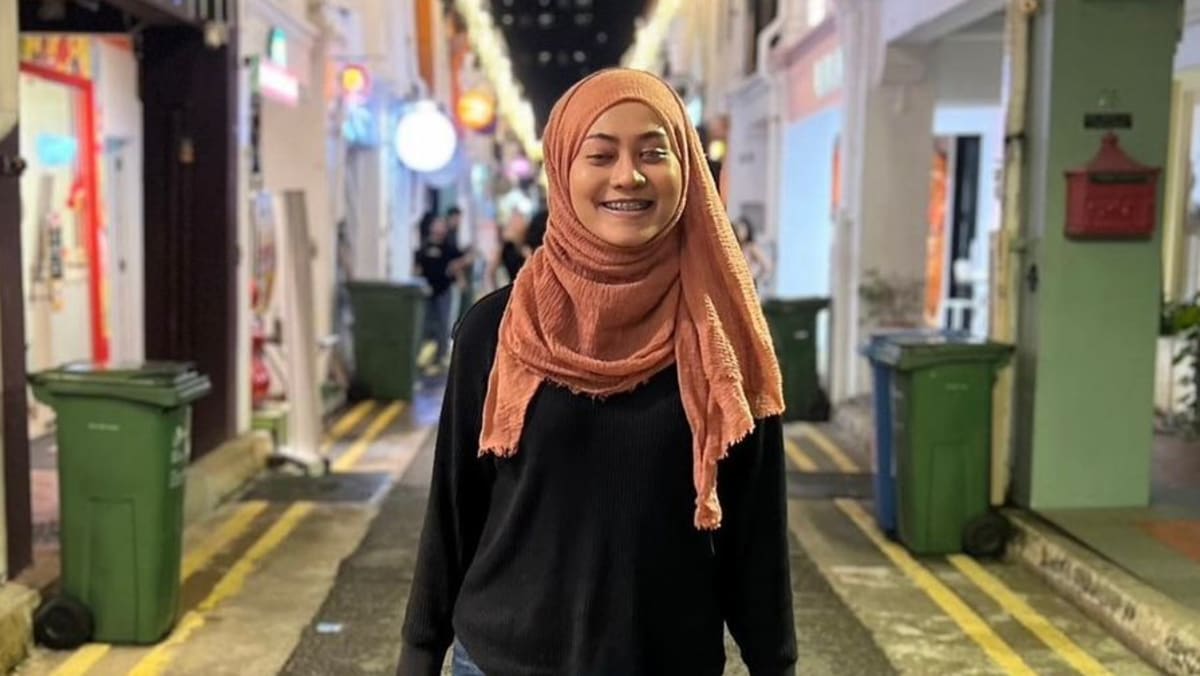Whenever I sit for a job interview, I worry about three things. First, whether I’ll impress the interviewer with my credentials. Second, whether the interviewer will find me a good fit for the company. And third, whether the interviewer will be so distracted by how blue my completely blind left eye is that they can’t focus on what I’m saying.
I was born with bilateral congenital glaucoma, a medical condition where both my eyes were affected by increased pressure that damaged the optic nerve. My left eye is completely blind and my right eye has only 2 per cent vision, down from 15 per cent when I was born.
I also have spina bifida, a birth defect where the spine and spinal cord don’t develop properly. As a result, I have problems with movement and sensation, especially in my lower body.
Lastly, I was born with a type of chronic lung disease which caused me to have respiratory issues, making it difficult for me to breathe.
To get by, I rely on many tools. I use a digital screen reader to read and write, a cane to move around with and support my back, and lots of different medications and colourful pills to control and regulate my pain and breathing.
People call them disabilities, and while I don’t disagree or have any problem with the word ‘disability’, I don’t fully resonate with that. I call them my superpowers because they are what make me special.
GROWING UP WITH THREE ‘SUPERPOWERS’
I am the middle child, and my older sister and younger brother had my back – literally and figuratively. My sister, especially, would help me move around the house and when we were outside until I didn’t need her help anymore. She would dress me up in nice clothes, apply makeup on me, and help me with my schoolwork.
I could have felt like a burden but my family never treated me that way. They’re a precious support system and without them, I would never possess the confidence I have today.
Related:
She got her master’s degree and raised four children, even as she battled a painful, incurable skin disease
Charades, social isolation: Living with an 'invisible' condition like aphasia
AN EDUCATION SYSTEM NOT DESIGNED FOR ME
Due to my conditions, and especially my blue eye, I was not spared from teasing – other kids called me names like “zombie” or “alien”. It was also hard to make friends. While some were nice to me, it just wasn’t easy to accommodate someone who couldn’t see and had trouble walking and breathing.
When I was 10, I was asked to leave my school because it lacked the resources to support my needs.
At that point, I felt dejected. While my family provided a comfortable and empowering haven for me, the rest of the world was harsh and was not as open to my conditions.
It was as if the world was telling me that despite my confidence, I was still different from everyone else. There was even a time when I felt it was better to not have been born.
But I had a goal. I didn’t want to give up even though it was tough.
I learned to become my own cheerleader. I reassured myself that it was fine to seek help and not feel like a burden and that it was okay to slightly inconvenience others to get what I needed.
After completing my pre-university education at 21, in 2010, I was offered two university scholarships. I could have chosen to study in Malaysia where I was comfortable, but I decided to pursue accountancy at the Queensland University of Technology in Brisbane, Australia.
My decision to study overseas made my parents very worried and anxious for my well-being, but I will always be grateful that they trusted me enough to let me go.
I had the best time of my life studying in Australia. I found open-minded friends, connected with disabled-friendly communities, and grew significantly in confidence as I learned to live overseas on my own.
It was an empowering period and I felt like a bird – I could spread my wings and fly freely.
I lived on campus with four housemates who included me in all their activities and never made me feel odd about my disabilities. I even befriended a lovely local family who welcomed me into their home and frequently took me out on weekend outings or short trips around the city.
Even today, I occasionally keep in touch with some of my former housemates and the family.
However, after I graduated in 2012 after two years of studying in Australia, the experience of searching for a job in Malaysia brought back memories of when I was 10.
I met so many rejections – literally, in the hundreds – and some employers would blatantly tell me that someone with my conditions could never do the jobs I aimed to do, which included roles in strategy, communications and project management.
But after 23 years of constant struggle to make space for myself and my parents’ endless sacrifices, how could I give up?
I took things one day at a time and looked for more disabled-friendly roles. Within a few months, I secured a position in community projects at a multinational company.
It has been more than 10 years since then. I’ve worked in four different companies, in roles that helped to make corporate opportunities accessible to others with disabilities, such as those with visual impairment, hearing challenges and mobility issues.




